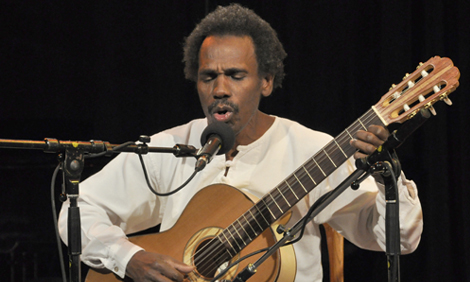Home
Blog
Composers
Musicians
Black History
Audio
About Us
Links
Musicians:
Blanke, John
Bridgetower, George A. P.
Chapman Nyaho, William H.
DePreist, James
Dworkin, Aaron Paul
Freeman, Paul
Johnson, Francis
Machado, Celso
Ngwenyama, Nokuthula
Wiggins, Thomas "Blind Tom"
Yifrashewa, Girma
AfriClassical Blog
Companion to AfriClassical.com
Guest Book
William J. Zick, Webmaster,
wzick@ameritech.net
©
Copyright 2006-2022
William J. Zick
All rights reserved for all content of AfriClassical.com
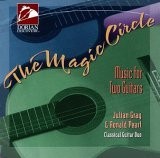
The Magic Circle
Images do Nordeste; Boliviana
Misterios do Rio Lento
Julian Gray & Ronald Pearl, guitar
Dorian Recordings 80111 (1994)
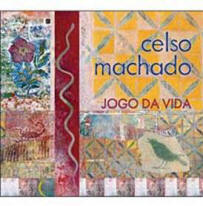
Celso Machado: Jogo da Vida
CBC Records 3021 (2007)
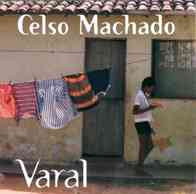
Varal
Canto de Escravo (Slaves Song)
Surucua Art Productions 002 (1997)
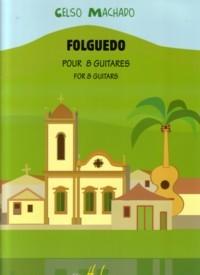
Folguedo For 8 Guitars
Celso Machado |
Home
-> Musicians -> Machado, Celso
Français
Celso Machado (b.
1953)
Afro-Brazilian Classical Guitarist & Composer
Brazilian Music With
Baroque Inspiration
Audio Samples: Surucua Art Production 002 (1997);
Varal; Celso Machado, guitar
a Parazula
b Canto
de Escravo (Song of the Slaves)
1
Classical & World Music
Celso Machado is an Afro-Brazilian composer,
guitarist, lyricist and singer whose personal website is
http://www.CelsoMachado.com. The works he writes, performs and publishes are
played by guitarists in both classical and world music
genres. William J. Zick
interviewed Celso
Machado by phone on May 17, 2010. Celso explained that a
second book of his sheet music would be called Brazilian Music With
Baroque Inspiration.
2 Birth
Celso was born in Ribeiro Preto, São Paulo State, Brazil on January 27, 1953.
Ribeiro Preto is in the Northeast area of the State, some 300 kilometers
from the City of São Paulo.
Celso was the second-youngest of six brothers. When he was about 2
his father died. At age 7 he began performing in street bands.
3 Mother's Death
The youth
was only 12 when his mother died in 1965. For about a year, he and his
younger brother Carlinhos lived with an Aunt and a Grandmother.
From 1966-1970 the two brothers lived with their oldest brother,
Benedito, and Benedito's wife and children, in the Northeastern interior
towns of São Jose Rio Preto, Tupã, and Guararapes.
4 Rhythm Maker
Tony Montague wrote an article on Celso Machado for The Georgia Straight, in Vancouver, British Columbia,
Canada July 15-22, 1999. It is reproduced at the guitarist's Web site.
The title is: The Rhythm Maker: the instruments Celso Machado plays are
the fruits - sometimes literally - of his love of music.
Dried-tangerine-skin samba anyone? The reporter observes that Machado is
constantly making music with whatever is at hand. He continues:
|
But there’s another
side to Celso’s musical inventiveness and versatility:
He’s a highly respected multi-instrumentalist and
composer, with nine solo recordings to his name -
including 1997’s Juno-nominated Varal.
Marcus Vinícius, one of Brazil’s leading critics, has
hailed him as “ the most important Brazilian
guitarist of the new generation.” And in France, where
he lived for a number of years, Celso’s compositions are
taught [in] the conservatories. |
5 First Guitar
In the newspaper article,
Tony Montague quotes Celso as saying he shared and borrowed guitars for
4 years, until a fan gave him his first instrument:
|
That was in 1969, and I was already teaching quite a
bit. The guitar was nothing fancy, but it
was so great to have one of my own at last that I almost
cried. |
6 Lessons
Celso told the reporter that his
own guitar instructors gave him lessons without charge:
| They
were happy to show me what they knew. The condition was
that I wouldn’t miss any classes, and that I learned
everything they taught. |
7 Solo Career
The article chronicles Machado's early
career as a soloist:
|
Little by little Celso
was able to put together a career as a solo artist,
performing in bars and theatres, even appearing on TV.
He played
classical compositions, as well as popular Brazilian
pieces in styles such as chôro, baião, and samba. |
8 Quartet
Montague relates that 5 of the 6 Machado brothers became professional
musicians. He tells of Celso's relocation to São Paulo and the formation of a
quartet comprised of himself and three of his brothers:
|
In the
early ‘70s, Celso moved to
the sprawling city of São Paulo to live in a house with
Geraldo, Carlinhos and Filó, and performed in a quartet
with them. Despite the pleasure of being reunited with
his brothers, it was a difficult time. “I was still
young, and trying to figure out how to get into the
music business in Brazil, which is extremely
competitive. There were so many promises made to me -
but for a long time they never came to anything." |
9 First Recordings
Celso told Tony Montague
that he launched his career as a solo guitarist with two instrumental
recordings:
|
"Eventually, though, I did
manage to put out a couple of records of instrumental
music on guitar - Brasil Violão and Violão”.
Released in 1977 and 1980 respectively, the albums
established Celso’s reputation at home and abroad as one
of Brazil’s most outstanding new guitar players. |
10 International Career
In 1982,
while still living in Brazil, Celso Machado
met a French guitarist, Thierry Rougier. Celso began his international
career in the following year, 1983, at the Festival of Brazil in London,
England. Rougier invited Celso to visit him at his home in the
South of France, near Toulouse. During the visit, Thierry Rougier
introduced his guest to organizers of various guitar festivals. He also
helped Celso put his compositions on paper.
11 Publishing
The works were brought
to the attention of the publisher Éditions Henry Lemoine in Paris, and
were
published with the
involvement of the Festival International de guitare de Mérignac, near
Bordeaux. The
title of the volume translates in English to Brazilian Popular Music for
Flute and Guitar. In 1985 the two guitarists recorded a vinyl album,
Imagens do Nordeste.
12 France
In the interview with William J. Zick, Celso was asked how many years he
had stayed in France. He replied that he was in France for nearly
5 years, from 1984 to the beginning of 1990.
|
Between
those years, in 1986 I came to Canada, from France. That
was the first time I came to Canada. My brother just
flew from Brazil in 1985 to join me there. In '86 we
shuttled between France and Italy. So I flew from France
to Canada in '86, after I came back it was just for a
few weeks or a month in Canada. I went back to France
again.
|
Celso added that he still returns
to France frequently.
13
Vancouver
Performing at three
festivals in Vancouver in 1986 convinced Machado that he wanted
to live in the city, and when he eventually made the move he
found a close collaborator with whom he often performs,
according to Tony Montague:
|
Over the next six
years the multi-talented guitarist made many visits to
B.C. He’s since become one of the pillars of the
world-music scene here, and has collaborated with many
artists - with none more closely than Chinese pipa (lute) virtuoso Qiu Xia He, whose group
Silk Road Music also appears at this year’s VFMF. |
In the interview For
AfriClassical.com, Celso Machado was asked when he settled in Canada:
|
1988
basically. I became a Landed Immigrant in 1990. |
14
The Magic
Circle
A prominent example of a recording of Machado's compositions by
other artists is The Magic Circle: Music for
Two Guitars, Dorian Recordings 80111 (1994). It includes three works
which Machado composed: Imagens do Nordeste, Boliviana, and Misterios do Rio Lento.
The guitarists are Julian Gray and Ronald Pearl.
15 Juno Nominees
Three of Machado's CDs have been nominated for Canadian Juno Awards:
Varal, Surucua Art Productions 002 (1997); Jongo
Lê, Daqui (1999); and
Capivara, Surucua Art Productions (2005). Capivara
was a nominee for 2006 in the 'World Music Album of the Year'
category. Varal includes Canto de Escravo (Slaves
Song), a song whose lyrics pay homage to the Afro-Brazilian
slaves who once worked Brazil's sugar plantations. Surucua Art
Productions is Celso Machado's personal label.
16 Folguedo
William J. Zick
asked Celso if he had written a work for the Zagreb Guitar
Quartet. Celso replied that he had:
|
I wrote an
adaptation of a piece I have for 8 guitars |
The interviewer
asked if the composition was
Folguedo.
Celso answered:
|
Exactly. I
had to adapt to a version for 4 guitars because I knew
they were such great guitarists. So I made this version
for them... |
17
Baroque Style
Celso explained that
because of the architecture he saw in France and Italy, and the
Italian Baroque Music he heard in Europe, he was inspired to compose
pieces with Baroque influences. He was asked what he called
the project, and replied:
|
Brazilian Music With Baroque Inspiration
is what I will call the published book. My whole career
I have been fascinated by Barroco Music. I still feel
that sparked my composing since that time.
|
Guitarists Juanita Wooten
and and Lynn Peterson perform Motivo Barroco by Celso Machado in
a June 1, 2010 YouTube video (5:15) we find attractive and engaging.
18
Film Scores
Machado has composed sound tracks for several
documentary films. His score for the film In the Company of Fear
won a Leo
Award in 2000 in Canada, where he has lived for many years. Publication of
Machado's sheet music has resulted in many performances by other
guitarists.
19 Master Classes for Guitar
Machado has adopted rhythms and musical instruments
from many cultures. In the interview for AfriClassical and
AfriClassical.com, he explained his method for teaching master classes for guitar:
|
We could
call them master classes, but I prefer to work with a
guitar group of around 8 people. It is actually a pretty
good number. |
Celso contrasted
his method with the practice he has often observed in other
settings:
|
Normally in master classes that I have experienced,
a teacher comes to the room and picks one person at
a time.
...
I
don't think that's a good idea to work individually.
Basically, if I am in the room with maybe 15, 20 or
however many people, I prefer to make everyone play
together at the same time.
|
20 Selected CDs
The compositions of Celso Machado can be found on a number of
CDs, some
including him as a guitarist and others not. Selected
examples of his works on such CDs are:
Algodao Doce,
Musique populaire brasilienne: Pé de Moleque; Piazza
Vittorio; Quebra Queixo; Evocacion;
Duo AgiLeo - Zsófia
Boros, guitar; Daniela Lahner, flute;
Preiser Records 90505 (2005)
Algodao Doce, Paçoca, Pé de Moleque, Piazza Vittorio;
Guitare Plus Vol. 33: Argentine, Bresil, Colombie;
Confluences Ensemble; Mandala 4943 (1999)
Algodao Doce, Paçoca, Pé de Moleque; Modinha: Die Musik
Südamerikas;
Walter Stoiber, Winfried Stegmann, guitar; Ambitus 97925
(1999)
Algodao Doce, Paçoca, Pé de Moleque, Quebra Queixo;
Romancing the
Oboe; David Nutall, Timothy Kain, guitar; Tall Poppies 119
(2006)
Bolinhas de Queijo, Imagens do Nordeste, Sambalanco;
Folios Guitar Duo; Neil Anderson, William Buonocore, guitar;
Centaur Records 2181 (1995)
Danças Populares Brasilerias; Jamerica: Guitar Music From
The New World; Jam Quartet; Bis 977 (1998)
Imagens do Nordeste; (Excerpts): Catgut Flambo;
Harris Becker, Pasquale
Bianculli, guitar; Msr 21699 (1999)
Misterios do Rio Lento; Nylon & Steel; Manuel
Barrueco, Al di Meola, Steve
Morse, Andy Summer, guitar; Emi Angel 56941 (2001)
Quebra Queixo; La Luna; Canadian Guitar Trio; Skylark
Digital 9802 (1998)
Xaranga do Vovo; Brazilian Portrait;
Gerald Garcia, guitar; Naxos
550226 (1994)
21 Jogo da Vida
The online music shop of CBC Records,
http://www.cbcshop.ca/,
says Machado's CD Jogo da Vida, CBC 3021, released July
3, 2007, represents a substantial departure for him:
|
Until now,
Celso’s recordings and live performances have been
mostly solo affairs: amazing, delightful, but still
focused pretty much on his own talents. To start this
project, however, Celso put together his dream band for
a Toronto concert as part of CBC Radio’s OnStage radio
series. He brought in his brother, Carlinhos Machado,
from São Paulo, added the prodigiously-talented young
Torontonians David Virelles and Rich Brown, and
completed the quintet with renowned New York-based
Brazilian expatriate, Cyro Baptista. The concert was a
great success. Then, as the subsequent recording
sessions heated up, two more young Torontonians –
singers Eliana Cuevas and Guiomar Campbell – stirred
their sonic spices into the delicious musical stew that
is now Jogo de Vida. Celso alone is a force of nature,
but you won’t believe your ears when you first hear the
sound of these six other great musicians adding their
unique voices to his. Bon apetite! |
Performers on Jogo da
Vida are
Celso Machado,
acoustic guitar, vocal and percussion; Carlinhos Machado,
electric guitar; Cyro Baptista, percussion; David Virelles,
piano; Rich Brown, electric bass; Guiomar Campbell, vocals and
percussion; and Eliana Cuevas, vocals.
This page was last updated on
March 5, 2022 |





